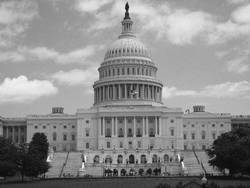Upon the onset of the COVID-19 pandemic, the world has witnessed the decline of the global economy, alongside the proliferation of social and political unrest. These uncertain times have left even the most developed nations in compromising positions as they navigate these unprecedented periods of instability. However, the state of already unstable developing countries is of even more significant concern as many previously lacked public infrastructure, stable economies, and social structures to prevent conflict before the pandemic.
International organizations including, but not limited to the United Nations and the World Bank, remain committed to their stated goals of aiding these nations throughout this challenging period. In general, the objectives of these organizations include maintaining standards to ensure safety, assisting in achieving economic stability, and establishing norms regarding how nations conduct trade agreements and solve conflicts.
One of the main benefits of international organizations’ involvement in developing nations is derived from the United Nations and its various bodies. Specifically, the United Nations Development Programme has had many successes in facilitating positive and constructive development in countries worldwide. The UNDP develops solutions to development through three main channels, democratic governance and peace-building, sustainable development, and climate and disaster resilience. In this way, the organization approaches development through a multidimensional perspective to eliminate poverty at the source, especially during the pandemic. According to the UNDP’s 2021 annual report, the organization was able to keep 6,700 government entities across 82 countries working through the pandemic. Even more, the UNDP supported 5,300 community-based organizations to fight COVID-19 and its side effects, including gender-based violence, human rights abuses, and racism and discrimination.
Despite the vast successes of the UNDP, the body presents certain risks which come alongside such global funding programs. Primarily, the body struggles in governance and risk management. When the UNDP cannot foster a productive relationship with stakeholders at any level within the aided nation, it can result in the body’s inability to implement critical activities ultimately needed to achieve its objectives.
Another issue associated with the UNDP includes a lack of program management. In some cases, unrealistic goals are set forth for the program alongside insufficient funding, resulting in developing nations being unable to implement required programs as they lack the infrastructure or the funds to do so. From this point, poor financial management is also a common issue that coincides with UNDP development programs. Sometimes this is of no problem to the body as the nation being aided could misuse the money provided through corruption, fraud, or theft. However, financial mismanagement is not something the agency is immune to, with the misuse of funds occurring in certain projects. This is an area where the UNDP can make an improvement.
The World Bank is another vital international organization for development that aims to provide loans and grants to growing nations to eliminate poverty through economic advancement and expansion. The World Bank is a regular bank except that its borrowers are national governments instead of individuals. The organization funds projects that promote infrastructure, education, and health, all goals that have many social benefits but are not profitable enough for private firms to facilitate. According to the World Bank’s 2021 annual report, the body has made a total of 4 billion dollars in funds available for developing countries to expand health care access, increase the supply and local production of vaccines and personal protective equipment, as well as unlock medical supply bottlenecks. Additionally, the World Bank provided over 20 billion dollars in 2021 to solely aid developing nations in purchasing and deploying safe and effective vaccines.
Similar to the UNDP, the World Bank also has its own set of issues that disrupt operations of the body. A main criticism of the World Bank comes from its part in forming the Washington Consensus. The Washington Consensus is a development model that promotes de-regulation, government downscaling, market liberalization, and privatization of industries. This model has been criticized for ignoring issues of equity, employment, and the ways in the economic reforms are carried out, usually through the scope of shock therapy.
The nature of international organizations and their impact on developing nations cannot be entirely understood by analyzing only two bodies that have many others surrounding them. However, it is vital that these bodies are both praised and criticized for their actions to ensure transparency and that the global public can be informed on their actions.


